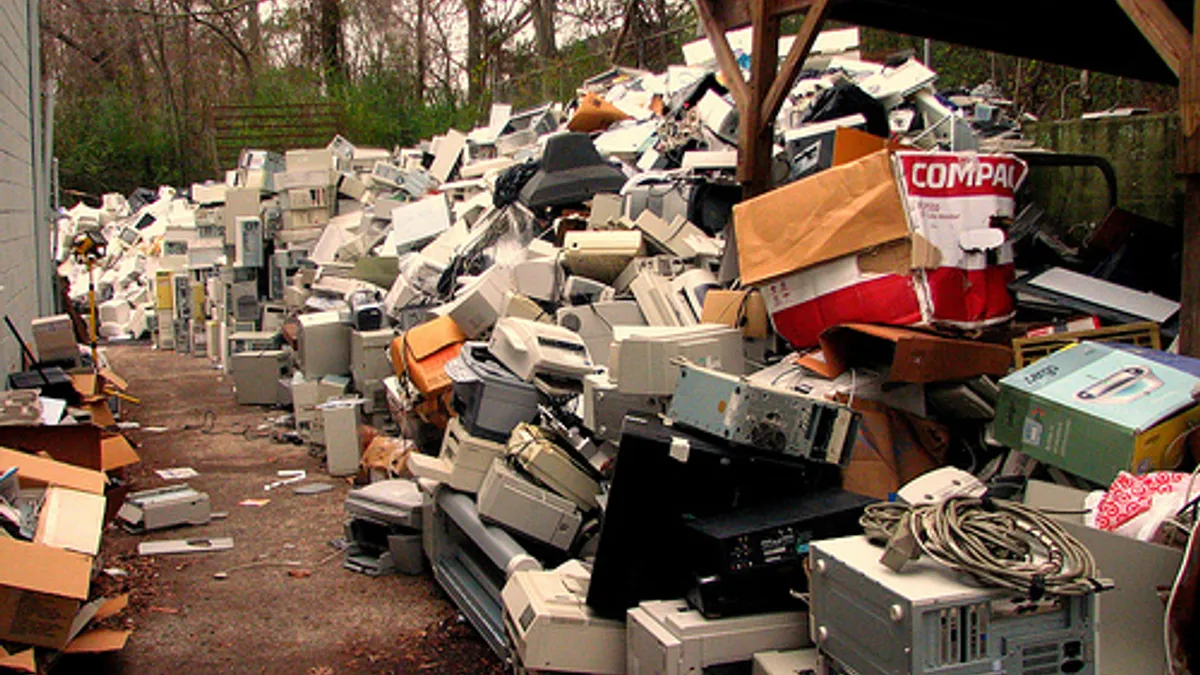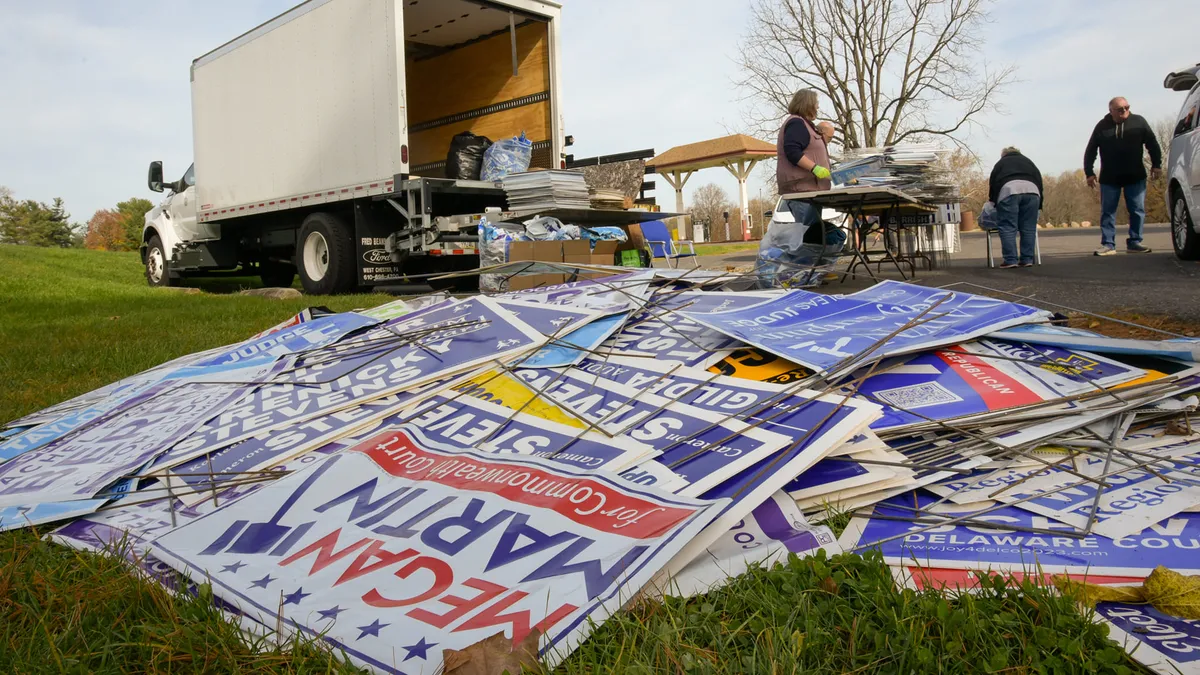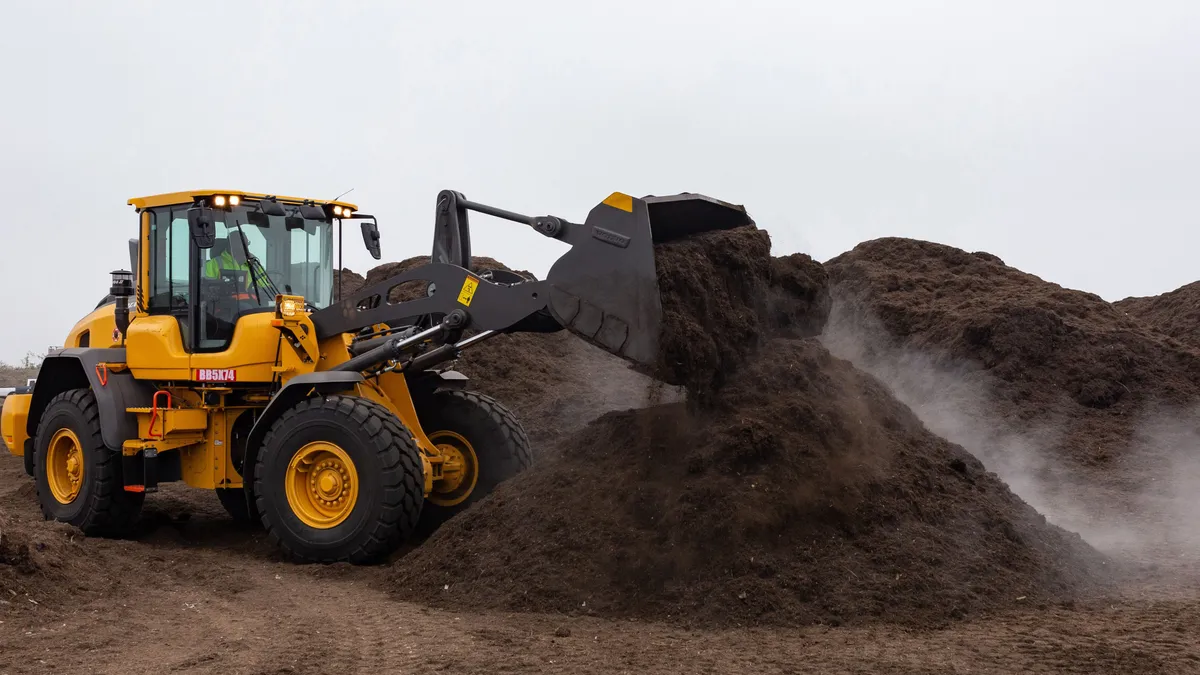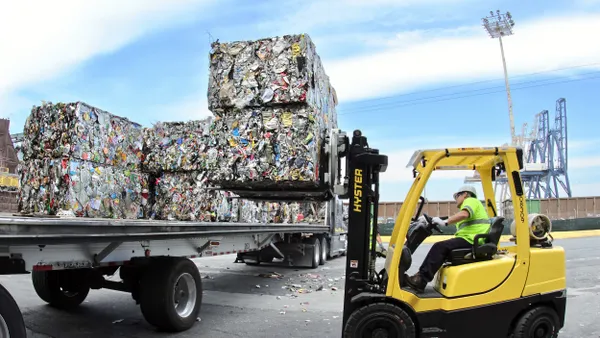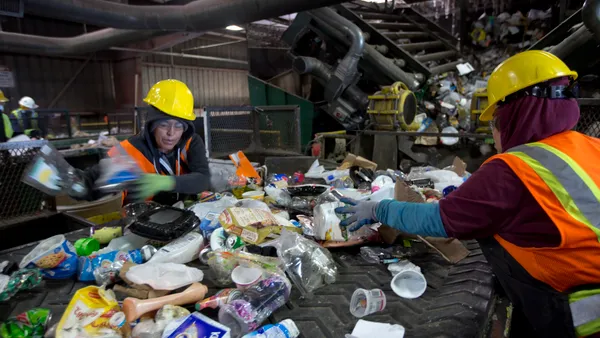UPDATE: IMS Electronics Recycling issued a release disputing the Basel Action Network's (BAN) claim that it had sent a non-functional printer directly from its California recycling facility to China.
IMS says the equipment was shredded first and BAN's tracking device continued transmitting a signal from within the plastic scrap. BAN founder Jim Puckett said it was unlikely a device could survive the shredding process and pointed out that recycler Total Reclaim used this same explanation when accused of a similar practice last month.
Waste Dive will continue to report on this story as it develops.
Dive Brief:
- The nonprofit Basel Action Network (BAN) identified three more e-waste recyclers from Washington and Oregon that allegedly sent material to China and violated pledges to process material locally.
- BAN found that six of the 14 e-waste items which it placed tracking devices in were shipped overseas. Interconnection, EWC Group Inc., and IMS Electronics Recycling have been identified as the responsible companies, though those reached for comment have disputed the claims.
- Both states have laws which require manufacturers to pay a fee on locally sold electronics that goes toward recycling programs. All three businesses are listed as approved recyclers in Washington, but that status could be revoked if the state chooses to investigate and finds them at fault.
Dive Insight:
BAN has been active on the issue of e-waste exports for years, but made waves when it received a grant to install tracking devices in 200 old electronics in 2014. One-third of the devices were sent overseas, many to a region of Hong Kong called the New Territories that is notorious for its unlicensed electronics recycling facilities.
Last month, BAN reported that Seattle-based recycler Total Reclaim had been among the companies exporting their waste to these locations. This was particularly surprising because Total Reclaim had been part of BAN's e-Stewards program and was seen as a leader in the field. Dell's Reconnect program with Goodwill was also singled out for exporting some units.
These types of incidents are becoming more common and some say it shows the need for a better national e-waste recycling system. The United States is the only developed country that doesn't regulate its e-waste exports and 22 states have no laws on the subject at all. Some states, such as North Carolina, have even moved toward repealing the laws they do have. With consumers buying an estimated 1 billion devices in 2015 — and many more sitting unused in their homes — this is a situation that will not be going away soon.



